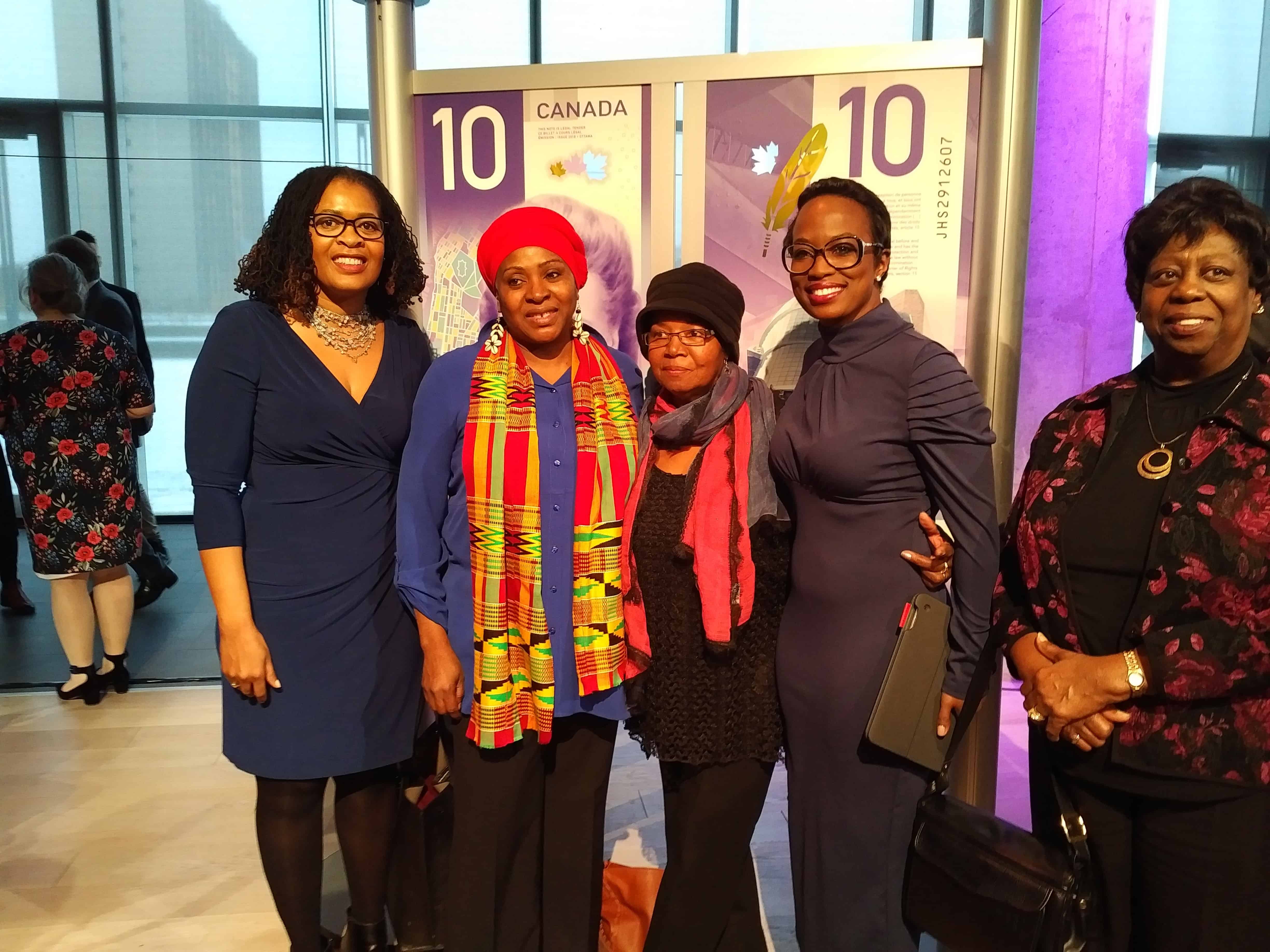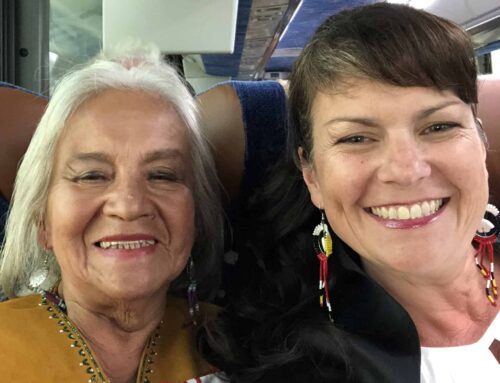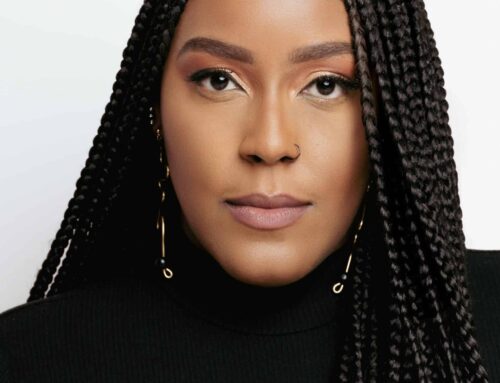Wait! Before you spend that crisp new $10 bill, ask yourself if you know the story of the woman looking back at you. Until the new notes came into circulation last year, Viola Desmond’s contribution to Canadian history was one of many by Black Canadians that went unheralded.
Whether it’s February, which is African (Black) History Month, or any other time of year, there are many ways to improve our collective understanding of the history, experiences, and accomplishments of African-Canadians. There are also many ways to support the development of ongoing and future success.
At the Canadian Women’s Foundation, we know that the ongoing journey toward racial equality in Canada intersects with that of gender equality – and we strive to ensure that our work recognizes the particular barriers Black women and girls face.
Here are four ways to support Black women’s empowerment in Canada all year long:
Listen and learn
Books are a great place to start, and non-fiction works by Black Canadian authors provide in-depth historical accounts that weren’t necessarily covered in your high school history class. More recently, Robyn Maynard’s award-winning book Policing Black Lives explored the connection between Black history in Canada and current experiences of racism, as well as the barriers Black women and girls continue to face.
In terms of fiction options, Black women continue to contribute unique voices, characters, and stories to the contemporary Canadian literary landscape. The 2018 $100,000 Scotiabank Giller Prize went to Esi Edugyan for Washington Black, a novel about slavery, freedom, and identity. It’s Edugyan’s second time winning the prize, and the novel is a powerful starting point for discussing equality at your next book club meeting!
And let’s not forget about seeking out and listening to young people’s voices. In fact, the Canadian Government’s theme for this year’s Black History Month is Black Canadian Youth: Rooted, Boundless and Proud. Each year, the RBC Black History Month Essay Contest offers scholarships to students for essays on how Black Canadians have helped define our heritage and identity. You can read students’ prize-winning essays on the contest page, and encourage a young person in your life to submit an entry for next year.
Buy
One of the simplest and most tangible ways to support Black women entrepreneurs and business owners is to buy from them. From bakeries to bookkeeping and other professional services, sites like AfroBiz can help you find Black-owned businesses and entrepreneurs near you. Facebook even has a way to ask your friends for location-based recommendations; using that feature, you could write in that you are looking to support a business owned by a Black woman in your area.
Amplify
We each have the power to amplify Black women’s voices in our personal and professional spheres. Take some inspiration from a group of women working in the Obama White House, who famously started using a strategy of amplification — repeating each other’s ideas and giving each other credit — to make sure they were being heard.
You can also get acquainted with 100 Accomplished Black Canadian Women 2018, a book about powerhouse women working in sectors and regions across Canada. Follow these women’s work on social media and spread the word — one of them could be your next role model, mentor, political candidate, guest speaker, or hire. Take your amplification a step further by buying copies for your coffee table at home and for your workplace. And if you don’t work in a setting where it’s easy to share a book, think about sharing it elsewhere – perhaps you could donate a copy to the literature rack the next time you’re in a reception area.
Another way to amplify is by supporting projects that challenge racial stereotypes. Last year, filmmakers Rebeca Ortiz, Alicia and Venessa Harris ran a Kickstarter campaign to help fund the making of the short film PICK, which breaks down myths about Black hair. The crowdfunding campaign succeeded, production on the film is now finished, and it’s set to be released in 2019. Watch the film’s Facebook and Instagram pages for updates.
Advocate
A step beyond amplifying is advocating, particularly when it comes to the workplace and politics. We know that Black women are underrepresented in both professional and political leadership positions, and even those who do overcome multiple barriers to attain such positions continue to face discrimination. Regardless of our racial, social or gender identity, we can all play a role to recognize the inequities Black women and girls face and advocate for change.
Hadiya Roderique’s powerful account of being Black on Bay Street breaks down the many ways that workplace policies and culture can alienate racialized employees. “I walked the walk, I talked the talk, and I dressed the part, but belonging when you are an ‘other’ is hard. And the buildup of subtle and not-so-subtle signals that you don’t belong take a toll.” Watch the video below to hear Roderique’s recommendations on how employers can hire and retain diverse talent. Then ask yourself whether there are ways we all can advocate for changes in our workplaces.
When it comes to politics, we are in a federal election year, and there’s the opportunity to support Black women who are moving into politics. That could mean spreading the word about a candidate, canvassing to support her, or volunteering for Operation Black Vote.
We can also express our support for Black women politicians currently in office, particularly when they experience incidents like those shared by MP Celina Caesar-Chavannes, and applaud their resolve for continuing to break down barriers in politics.
As Caesar-Chavannes said: “I stand because we need more women in positions like these to change the status quo. Glass ceilings do not get broken by sitting on the sidelines and watching. They break when you stand up.”
And when women all stand together, we have the potential to shatter those glass ceilings for good — taking care that those following behind are not harmed by the splinters.
Learn More:
What African (Black) History Month Means to Me
Q&A: Author Robyn Maynard on Anti-Black Racism, Misogyny, and Policing in Canada
Black Women’s Identity in Canada: Parting the Roots of Black Hair with Simone Wright
Take Action:
Sign up for our e-newsletter to have our latest stories and resources sent to your inbox.
Follow us on Facebook and Twitter to join a national conversation about empowering girls.






